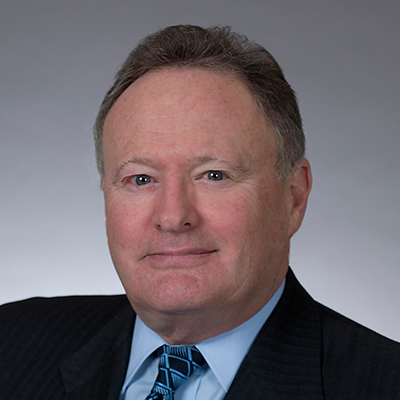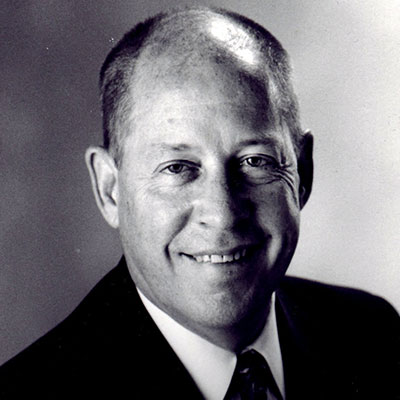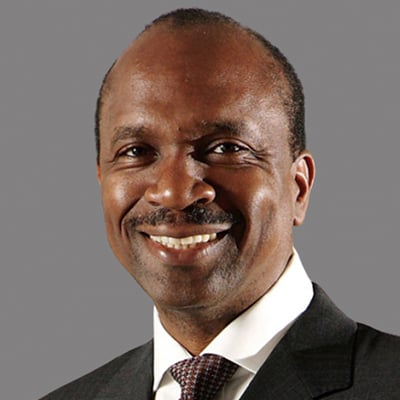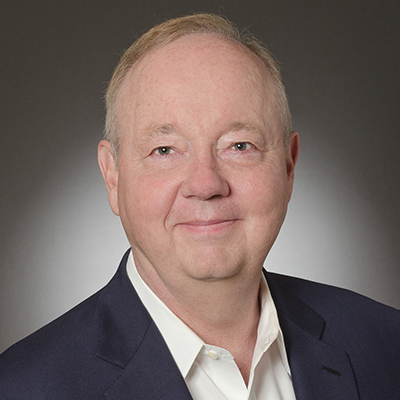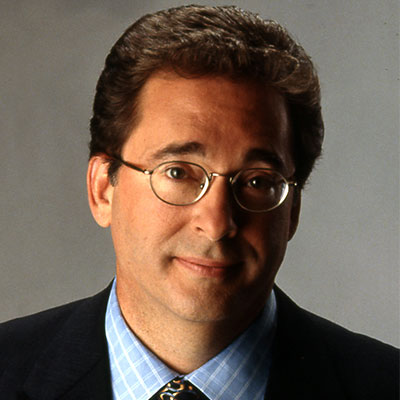Litigation Department of the Year - Finalist
Litigators at Kirkland always expect to call the tune, set the beat, and finish first.
Trial lawyers are, by nature, alpha dogs. But no big firm embraces that culture so jubilantly as Kirkland & Ellis. "We love to try cases," brags litigation partner Thomas Yannucci. "The internal culture is that you're a wimp if your case is not tried."
Since the start of 2000, Kirkland's litigation warriors have gone to trial in more than 25 cases. These include: a defense verdict for Motorola Inc., in a contaminated groundwater case in Arizona; a win for NL Industries Inc., in a lead paint chip case in Baltimore; and a favorable outcome for cigarette maker Brown & Williamson Tobacco Corporation in Brooklyn.
"Other firms have great trial lawyers, but not as many," asserts Yannucci, who handled the firm's presentation to The American Lawyer. We can't vouch for that, but we can say that Kirkland is not a firm prone to modesty. Still, with a stable of stars like David Bernick, Jeffrey Davidson, Michael Jones and William Pratt, the Chicago-based firm can legitimately boast of a deep trial bench.
Michael McGraw, executive vice president at Brown & Williamson, credits Kirkland with helping the company rethink its basic trial strategy after it lost a few individual cases brought by smokers (not handled by Kirkland & Ellis). The firm convinced the company to spend more time telling its side of the story, instead of focusing exclusively on attacking the plaintiffs' conduct, says McGraw: "They did an incredible job of digging into documents to craft that part of the case and making sure [the company] had good corporate witnesses." Since then, McGraw says, the tobacco company has won more than a dozen individual cases without a single loss.
While other firms try the individual smokers' cases, Kirkland serves as lead trial counsel for Brown & Williamson in the massive cases brought by third-party plaintiffs, such as insurance companies and asbestos makers. These parties seek reimbursement for claims they've paid for lung ailments.
Starting in the fall of 2000, Chicago partner Bernick squared off with the Manville Personal Injury Settlement Trust in a Brooklyn federal court in Falise v. American Tobacco Co., et al. The trust, represented by Ness Motley Loadholt Richardson & Poole of Barnwell, S.C., and San Francisco-based Orrick, Herrington & Sutcliffe, was trying to recoup billions of dollars from several cigarette makers.
"We were very nervous about this case," says McGraw. That was because it was before Jack Weinstein, a famously strong-willed federal judge who had a docket full of similar tobacco cases brought by third parties. As the first of these suits to go to trial, Falise was in effect a test case that would influence the resolution of the rest.
At trial Bernick, who took the lead for all the defendants, stressed that Manville could not show that any misconduct by tobacco makers caused the trust to pay more money to claimants than it would have otherwise. Manville was aware of smoking's health effects when it paid these claims, he argued.
The seven-week trial ended with the jury deadlocked 10-to-2 in favor of the tobacco companies, and Judge Weinstein declared a mistrial. Manville dropped the case, and soon after a different asbestos trust abandoned its as well.
In Arizona, Kirkland partner Garrett Johnson rolled the dice last year in a class action against Motorola. The longtime Kirkland client, as well as other defendants, were targeted by Scottsdale homeowners who claimed that groundwater contamination had hurt their property values. Other defendants settled, but Motorola, facing claims of $266 million plus punitive damages, went to trial after nine years of pretrial wrangling. The company conceded that it had dumped a toxic solvent around its electronics plant, but asserted that its actions weren't negligent based on practices at the time, and that property values hadn't slipped.
After a four-month trial, Motorola came away with a defense verdict. With more litigation looming on medical monitoring claims and other issues, the plaintiffs settled all actions against Motorola for $15 million.
"By taking the case to trial and winning, they paid less than their fair share," says Phoenix plaintiffs' lawyer Anthony Lucia, who adds that the Kirkland team was "very, very good."
The firm doesn't like to play second fiddle, or even co-fiddle. "We don't like to be in a co-counsel situation," Yannucci says. "One firm tends to be dominant, and you don't want to be in [the weaker] position. We think were better than everybody else."
Kirkland litigators' reputation for aggressiveness pleases clients like Peter Kreindler, senior vice president and general counsel of Honeywell International Inc. "When you get a tough case and you want to maintain a tough posture, you can't find anyone better," he insists. This style doesn't suit everyone. "[They're] unnecessarily aggressive. That is not a quality I would look for," comments one lawyer at a major financial institution who observed Kirkland on the other side of a case and asked not to be identified.
The firm is proud of its hard-nosed reputation, but Yannucci insists they don't go over the line. He suggests that any criticism leveled against the firm smacks of sour grapes: "People will resent you if you make them look bad."
Kirkland's aggressive attitude was clearly on display during the reporting of this story. During interviews, firm lawyers didn't hesitate to crow that they were the best of the breed. "We can be very tough in deposition and in trial because we know how to do it," says Yannucci. And Johnson evidently couldn't resist concluding his last interview with one more bit of bragging: "Let me leave you with one final thought," he said. "We're better than all those other guys." Well, Garrett, maybe next time.
SIZE OF DEPARTMENT:
Partners: 144
Associates: 200
DEPARTMENT AS PERCENT OF FIRM:
Partners: 49 percent
Associates: 43 percent
EST. PERCENT OF FIRM REVENUE, 2001:
Undisclosed
PRO BONO HIGHLIGHT:
Won settlement for inmates in a special management unit at an Illinois state prison who claimed constitutional-rights violations. Obtained a $27,500 personal injury settlement for a worker injured while employed at a meat packing company.
Trial lawyers are, by nature, alpha dogs. But no big firm embraces that culture so jubilantly as Kirkland & Ellis. "We love to try cases," brags litigation partner Thomas Yannucci. "The internal culture is that you're a wimp if your case is not tried."
Since the start of 2000, Kirkland's litigation warriors have gone to trial in more than 25 cases. These include: a defense verdict for Motorola Inc., in a contaminated groundwater case in Arizona; a win for NL Industries Inc., in a lead paint chip case in Baltimore; and a favorable outcome for cigarette maker Brown & Williamson Tobacco Corporation in Brooklyn.
"Other firms have great trial lawyers, but not as many," asserts Yannucci, who handled the firm's presentation to The American Lawyer. We can't vouch for that, but we can say that Kirkland is not a firm prone to modesty. Still, with a stable of stars like David Bernick, Jeffrey Davidson, Michael Jones and William Pratt, the Chicago-based firm can legitimately boast of a deep trial bench.
Michael McGraw, executive vice president at Brown & Williamson, credits Kirkland with helping the company rethink its basic trial strategy after it lost a few individual cases brought by smokers (not handled by Kirkland & Ellis). The firm convinced the company to spend more time telling its side of the story, instead of focusing exclusively on attacking the plaintiffs' conduct, says McGraw: "They did an incredible job of digging into documents to craft that part of the case and making sure [the company] had good corporate witnesses." Since then, McGraw says, the tobacco company has won more than a dozen individual cases without a single loss.
While other firms try the individual smokers' cases, Kirkland serves as lead trial counsel for Brown & Williamson in the massive cases brought by third-party plaintiffs, such as insurance companies and asbestos makers. These parties seek reimbursement for claims they've paid for lung ailments.
Starting in the fall of 2000, Chicago partner Bernick squared off with the Manville Personal Injury Settlement Trust in a Brooklyn federal court in Falise v. American Tobacco Co., et al. The trust, represented by Ness Motley Loadholt Richardson & Poole of Barnwell, S.C., and San Francisco-based Orrick, Herrington & Sutcliffe, was trying to recoup billions of dollars from several cigarette makers.
"We were very nervous about this case," says McGraw. That was because it was before Jack Weinstein, a famously strong-willed federal judge who had a docket full of similar tobacco cases brought by third parties. As the first of these suits to go to trial, Falise was in effect a test case that would influence the resolution of the rest.
At trial Bernick, who took the lead for all the defendants, stressed that Manville could not show that any misconduct by tobacco makers caused the trust to pay more money to claimants than it would have otherwise. Manville was aware of smoking's health effects when it paid these claims, he argued.
The seven-week trial ended with the jury deadlocked 10-to-2 in favor of the tobacco companies, and Judge Weinstein declared a mistrial. Manville dropped the case, and soon after a different asbestos trust abandoned its as well.
In Arizona, Kirkland partner Garrett Johnson rolled the dice last year in a class action against Motorola. The longtime Kirkland client, as well as other defendants, were targeted by Scottsdale homeowners who claimed that groundwater contamination had hurt their property values. Other defendants settled, but Motorola, facing claims of $266 million plus punitive damages, went to trial after nine years of pretrial wrangling. The company conceded that it had dumped a toxic solvent around its electronics plant, but asserted that its actions weren't negligent based on practices at the time, and that property values hadn't slipped.
After a four-month trial, Motorola came away with a defense verdict. With more litigation looming on medical monitoring claims and other issues, the plaintiffs settled all actions against Motorola for $15 million.
"By taking the case to trial and winning, they paid less than their fair share," says Phoenix plaintiffs' lawyer Anthony Lucia, who adds that the Kirkland team was "very, very good."
The firm doesn't like to play second fiddle, or even co-fiddle. "We don't like to be in a co-counsel situation," Yannucci says. "One firm tends to be dominant, and you don't want to be in [the weaker] position. We think were better than everybody else."
Kirkland litigators' reputation for aggressiveness pleases clients like Peter Kreindler, senior vice president and general counsel of Honeywell International Inc. "When you get a tough case and you want to maintain a tough posture, you can't find anyone better," he insists. This style doesn't suit everyone. "[They're] unnecessarily aggressive. That is not a quality I would look for," comments one lawyer at a major financial institution who observed Kirkland on the other side of a case and asked not to be identified.
The firm is proud of its hard-nosed reputation, but Yannucci insists they don't go over the line. He suggests that any criticism leveled against the firm smacks of sour grapes: "People will resent you if you make them look bad."
Kirkland's aggressive attitude was clearly on display during the reporting of this story. During interviews, firm lawyers didn't hesitate to crow that they were the best of the breed. "We can be very tough in deposition and in trial because we know how to do it," says Yannucci. And Johnson evidently couldn't resist concluding his last interview with one more bit of bragging: "Let me leave you with one final thought," he said. "We're better than all those other guys." Well, Garrett, maybe next time.
SIZE OF DEPARTMENT:
Partners: 144
Associates: 200
DEPARTMENT AS PERCENT OF FIRM:
Partners: 49 percent
Associates: 43 percent
EST. PERCENT OF FIRM REVENUE, 2001:
Undisclosed
PRO BONO HIGHLIGHT:
Won settlement for inmates in a special management unit at an Illinois state prison who claimed constitutional-rights violations. Obtained a $27,500 personal injury settlement for a worker injured while employed at a meat packing company.
This article republished with permission from law.com and the January 2002 edition of The American Lawyer. c 2002 NLP IP Company


